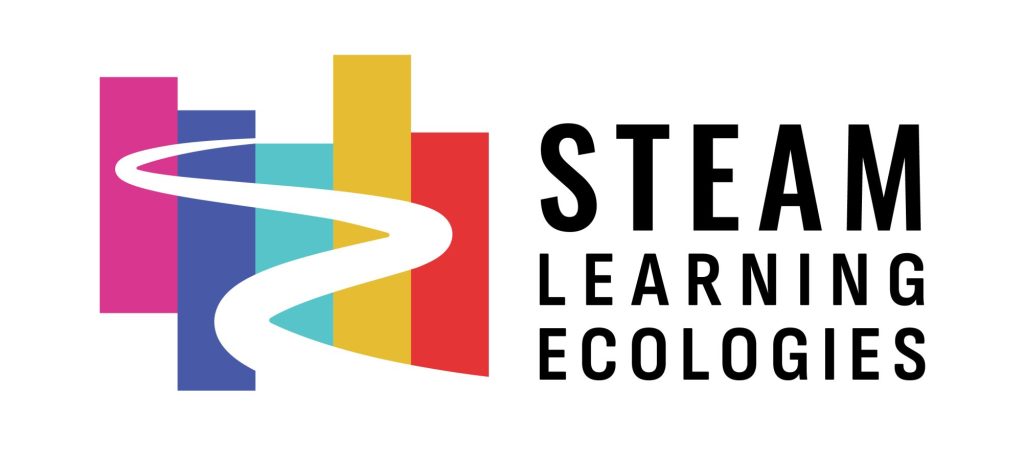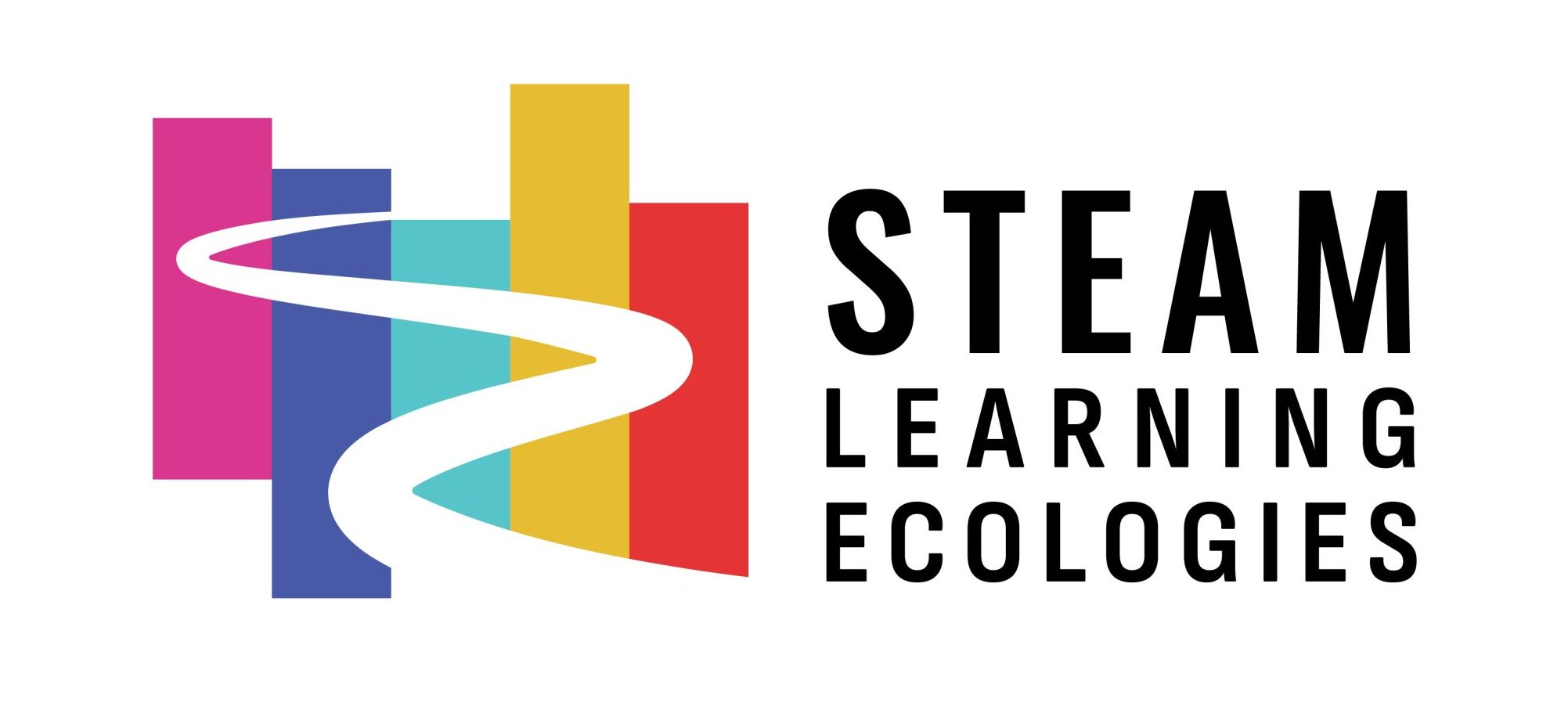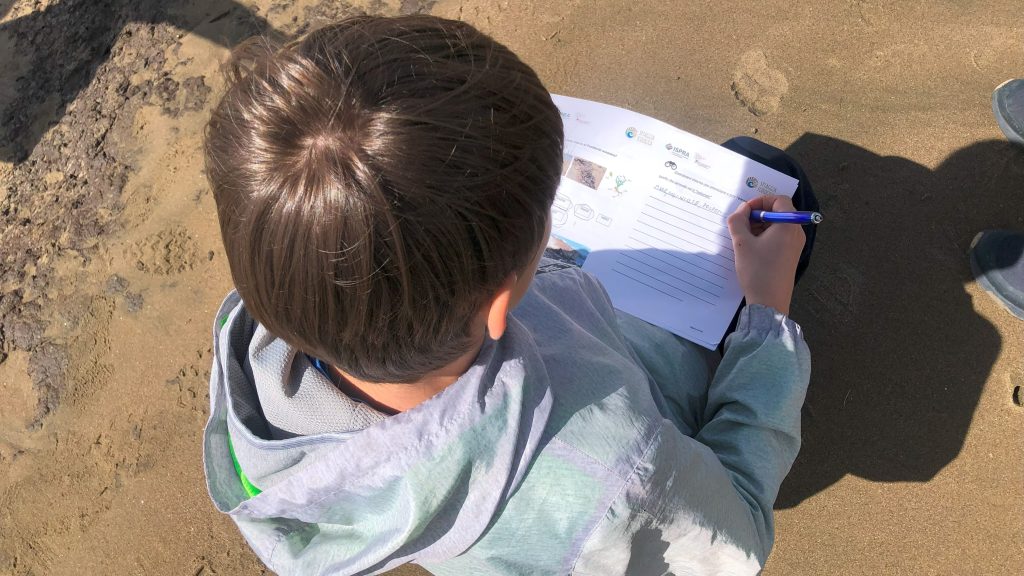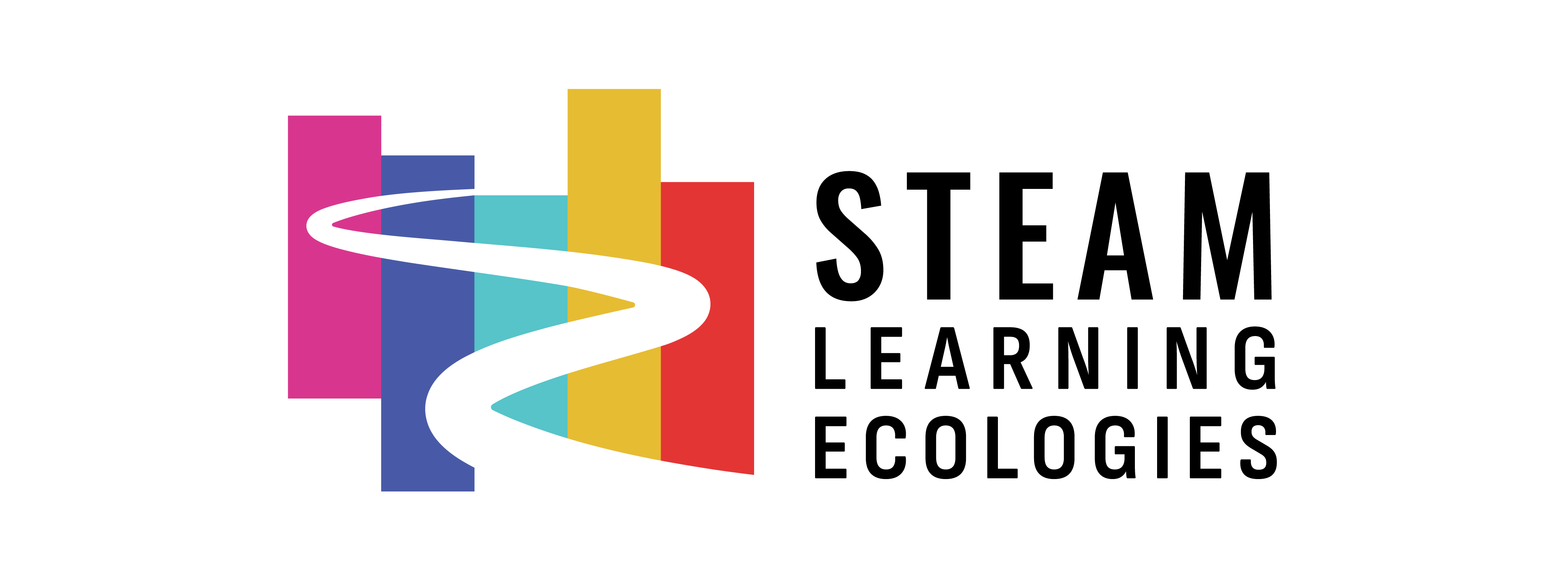Authors: Laura Mentini, Matteo Anzalone, Stefania Laneve
Background
STE(A)M Learning Ecologies (SLEs) is a EU-funded project (Horizon Europe) in which Azienda per la Promozione della Ricerca Europea (APRE) is a partner. It aims to increase young people’s interest and involvement in science in 13 European countries. Building on the results and lessons learned from the implementation of previous open schooling projects, the SLEs project creates “learning ecologies”, new local partnerships between formal, non-formal and informal education actors (including industries and civil society). The goal is to enhance skills in the fields of Science, Technology, Engineering, All, and Mathematics (STE(A)M approach). In addition, the path aims to overcome gender stereotypes in STEM subjects, stimulate young people to study and undertake career opportunities in the field, and make learning paths inclusive and challenging. The methods used is an interdisciplinary approach across multiple curricular subjects and open schooling through collaboration among different actors.
Methodology
The project is based on three key elements:
- STE(A)M: comprehensive approach to STEM subjects, integrating arts and humanities to increase interdisciplinarity, creativity, critical thinking and lifelong learning
- Open school: environment that promotes collaborations between educational actors and the local community
- Living Lab: methodology that emphasizes the central role of the user and co-creation processes, engaging students in activities involving real-world problem-solving situations
The methodology uses design cycles:
- Starting from a real problem with the goal of studying, developing, and proposing a solution
- Actively involve all social actors in co-creation
- Conceptualize, design and propose solutions with all stakeholders involved
- Prototype initial versions of possible solutions
- Test and evaluate preliminary solutions with users and obtain feedback to improve them.
In practical terms, students, together with the external actors involved, address a scientific issue related to a real-life problem, and propose different solutions. Finally, they build an artifact (educational product) that addresses the identified issue. This participatory process fosters an inclusion of all parties every step of the way. This cycle can be implemented multiple times in an iterative manner.
Pilot project in Italy 2023-2024
The Italian pilot project (2023/2024) took place at the sixth grade (IA) class of I.C Guicciardini (Rome) between October 2023 and May 2024, in different phases and learning contexts. The objective of the pathway was to develop knowledge, critical, and creative thinking about circular bioeconomy and environmental sustainability, promoting active citizenship, teamwork and youth empowerment. During the course, pupils and teachers collaborated with external experts including several APRE’s associate members such as governmental national research centers. These institutes are the Italian National Agency for New Technologies, Energy and Sustainable Economic Development (ENEA), the Italian Institute for Environmental Protection and Research (ISPRA), the National Institute for Labor Accident Insurance (INAIL) and the university Unitelma Sapienza, as well as international organisations like UN FAO and industries such as Fattoria Cupidi. All stakeholders co-created innovative and replicable educational products.
The course covered 8 months of learning activities following different phases of participatory co-design. The project design was based on the different phases of the living lab.
Phase 1: Preparation (June-September 2023)
After the co-creation event held in June 2023 in Rome, with the aim to assess the issues, skills, and interests of key local and national stakeholders on the topic, APRE held bilateral meetings with stakeholders to implement the pilot activity and drafted a learning sequence. The school was identified (I.C Guicciardini, Rome) and the commitment of the head teacher and teachers of technology, mathematics and art was secured. Then, during several online meetings, the learning sequence and content of activities (topics, dates, type of activities, target audience) was designed. During these meetings, experts presented ideas, resources, and approaches, and APRE facilitated the discussion, taking in teachers’ feedback. In agreement among all, the main theme of the course was identified: environmental sustainability and active citizenship, declined through specific topics (circular economy, the ecological beach, food waste, sustainable development goals).
At this stage, experts adopted innovative and engaging teaching methodologies to stimulate and assess learning, such as the use of songs, informational videos, games, narrative sequences with cards, and group work.
Phase 2: Co-creation (November-December 2023)
This phase provided students with the tools and knowledge needed to identify and further develop project ideas. Six informative lectures and interactive sessions were conducted by external experts, answering the question “What actions can you take for a sustainable lifestyle?”
Specifically:
- Circular Economy and Ecological Transition (ENEA)
- Sustainable development goals (UN FAO)
- Food waste and correct habits (INAIL)
- Ecological beach (ISPRA)
- Bioplastics (Unitelma Sapienza)
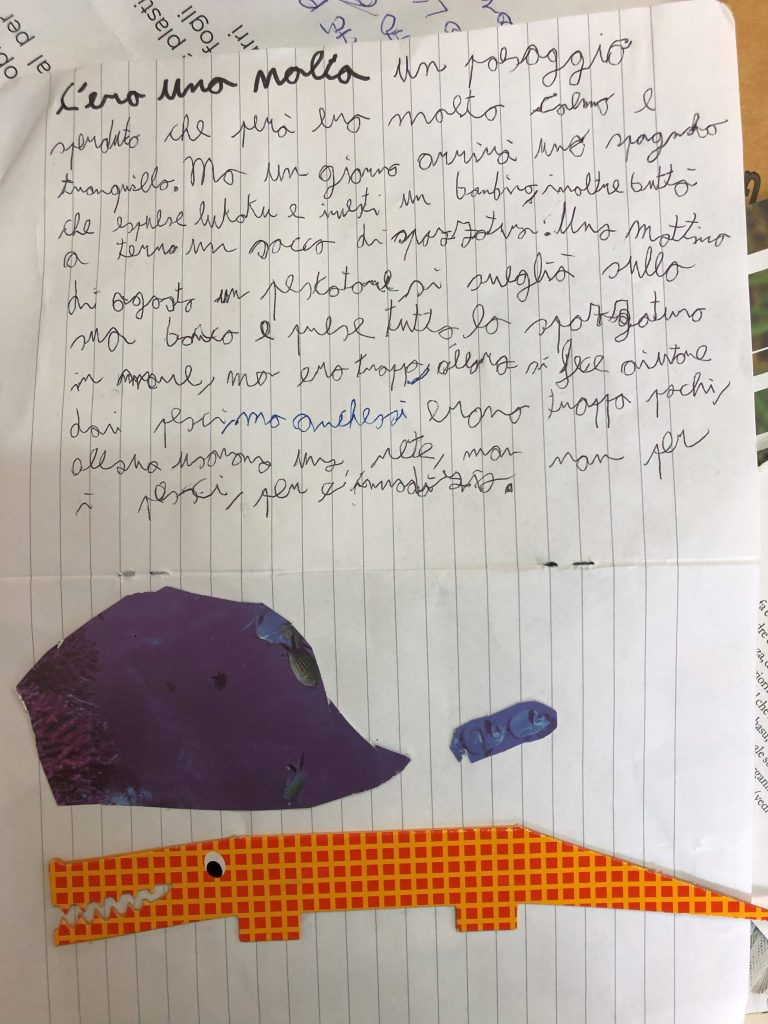
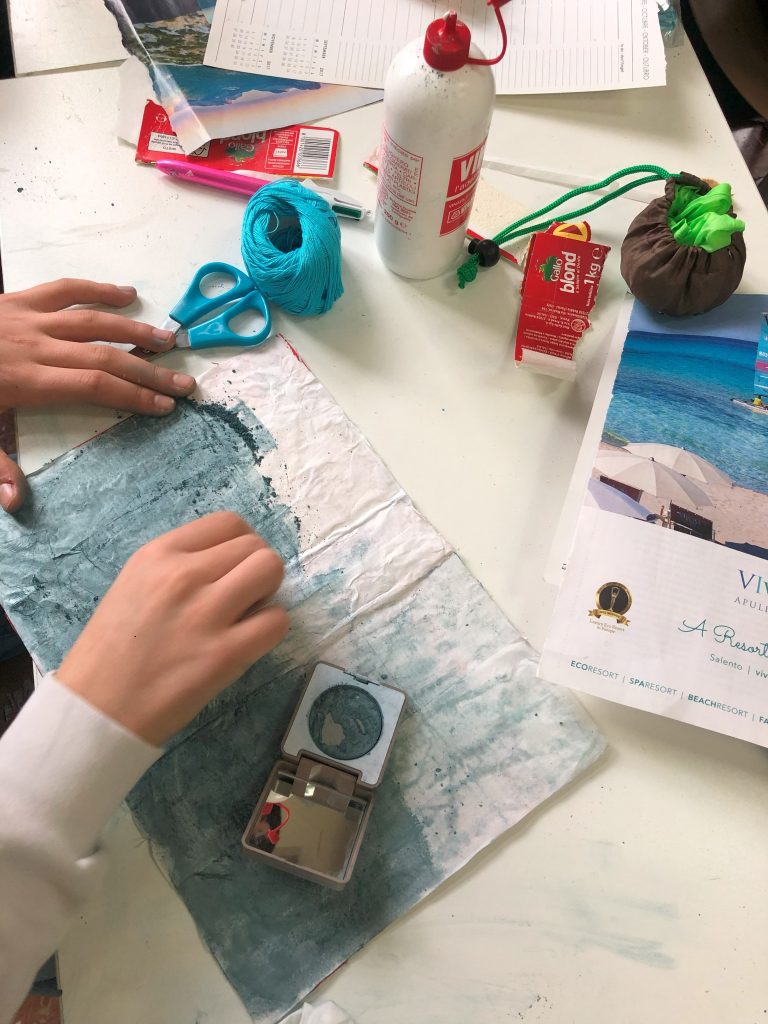
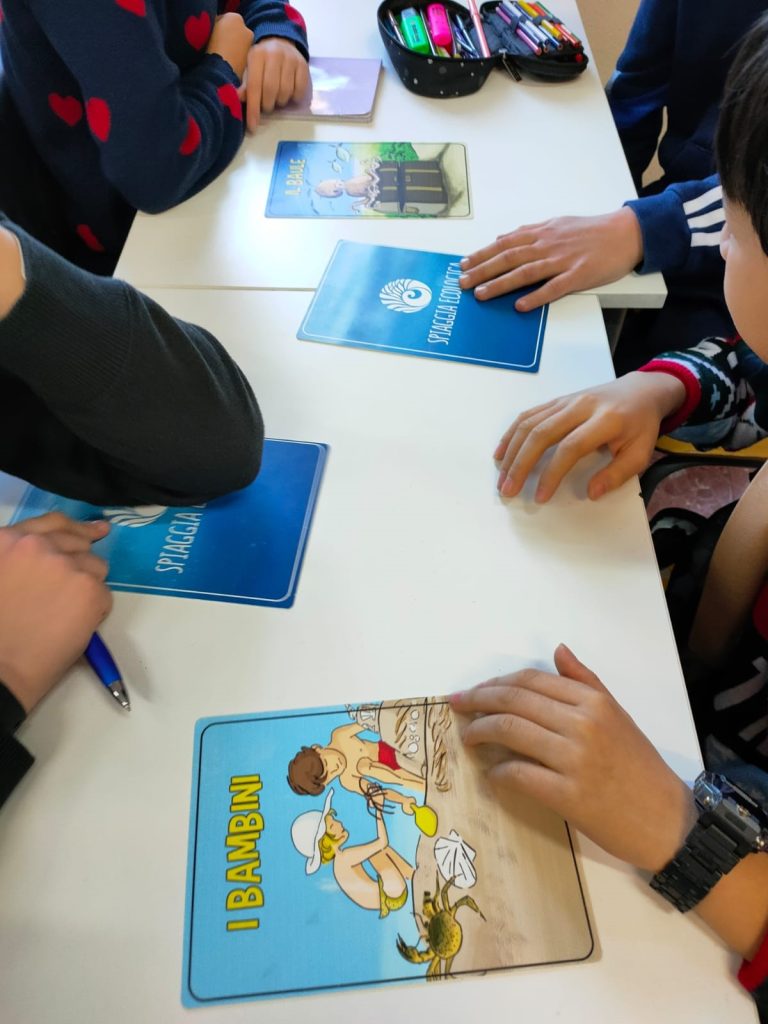
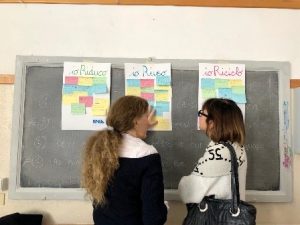
Phase 3: Exploration and prototyping (January-February 2024)
With the support of experts, students, through brainstorming and design thinking, proposed solutions and developed possible ideas for implementation. Divided into groups, they created action plans and implemented their projects. In particular:
- with INAIL they created an annual calendar focusing on sustainability days through drawings and multimedia content
- with ISPRA they created a Junk-Journal (thematic diary) with recycled materials on the theme of the ecological beach and the valorization of waste material
- with ENEA they made a little house with recycled materials for the exchange of books and comics tying it to the circular economy.
Throughout this phase, the grup made use of constant interaction between teachers and experts and a STE(A)M educational approach, based on the arts, tinkering (using hands, senses, tools, and skills to investigate, understand, and even change one’s world), and active inquiry-based learning – teaching young people the different stages of “doing research.
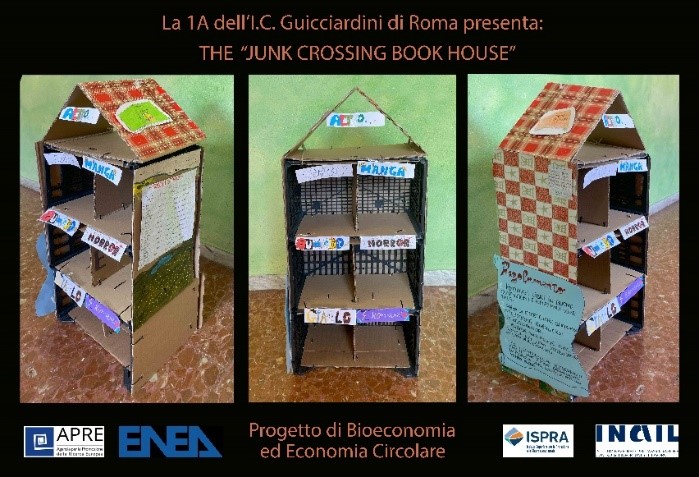
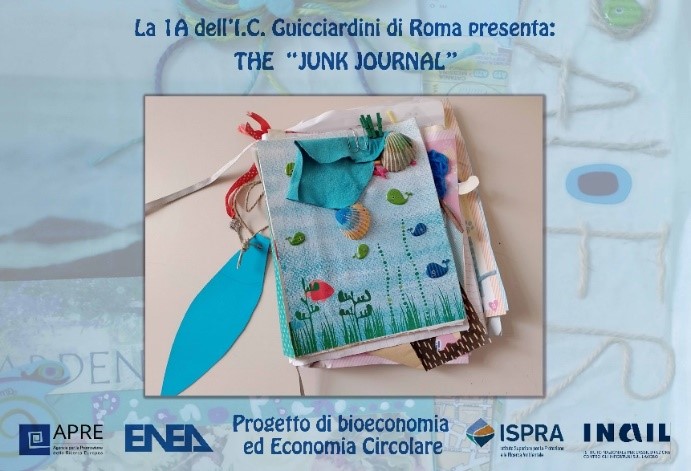
Phase 4: Experimentation and educational field trips (April – May 2024)
The pilot organised field trips to consolidate topics and explore opportunities in the local territory. In particular, we arranged a guided tour of the Torre Flavia Nature Reserve (RM), including practical examples of management and cleanup, and a sensory walk. With it, students could explore the reedbed in search of waterfowl nests, collect shrimps and prawns, do litter cleanups, observe organisms on the beach (and their traces using all five senses), and focus on Posidonia deposits. A second visit was organized to Cupidi Farm (VT), which has developed sustainable and circular farming approaches, embracing all the principles of the bioeconomy, including energy generation. Students were introduced to organic farming methods and the circular approach to resource management, a method that not only minimizes the amount of waste, but turns it into valuable resources that are commonly considered waste.
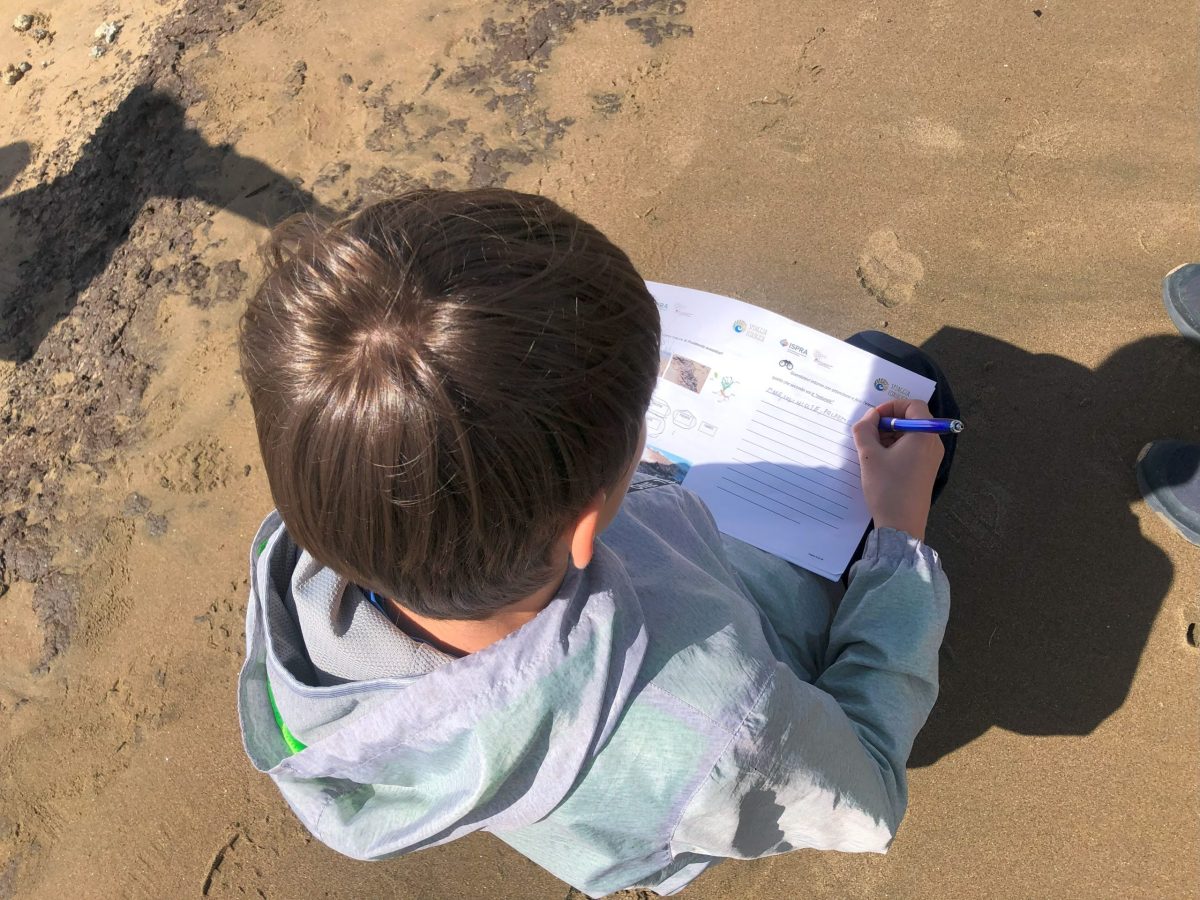
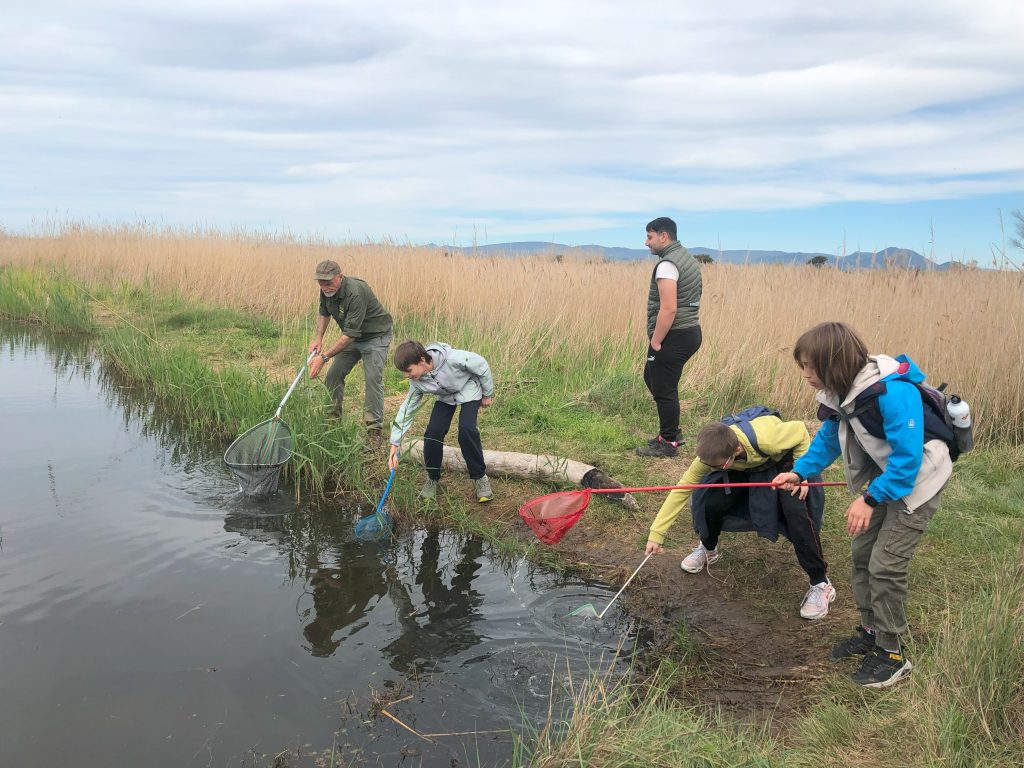
Phase 5: Dissemination and Evaluation (May – June 2024)
The final phase included an evaluation of the pathway together with all stakeholders in a collective online give-back and completion of a feedback questionnaire. The results of the pathway were shared through school channels and social media. In addition, the young people made a backstage video and a narrative video of the experience through their emotions and thoughts. The products were finally presented during the Riscarti 2024 festival (Rome) and during the open day “Sustainability Day” organized annually by the school where students presented their results to parents, other classes and the entire community.
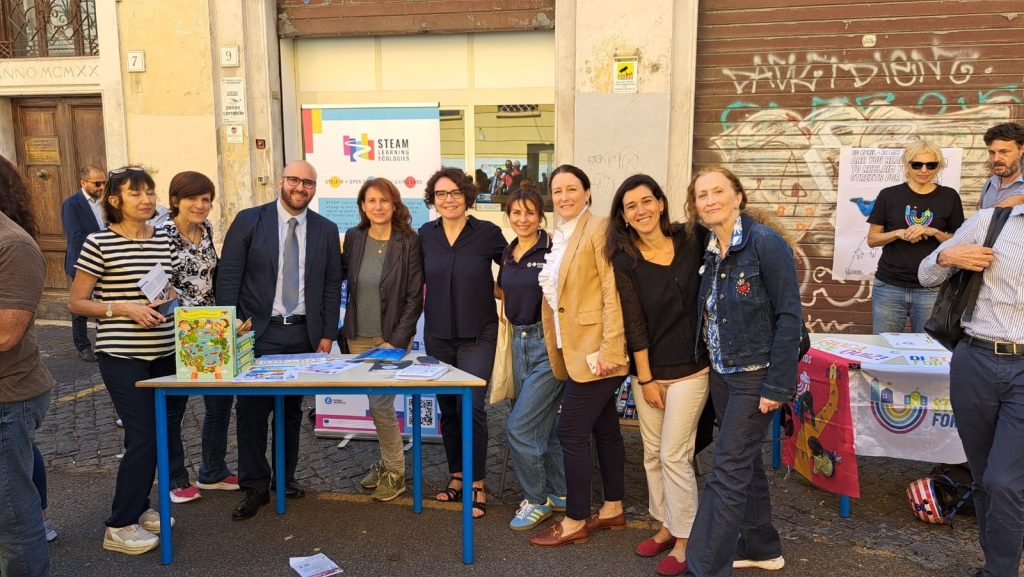
Results of the pilot project 2023-2024
- 8 months and 40 hours of activities in different phases and learning contexts in and out of school
- 7 stakeholders: 1 school (2 teachers, 20 students) and 6 external organizations
- 5 participatory design workshops
- 3 field activities
- 3 educational products
- 2 final dissemination events
The learning journey was a huge success and proved to be extremely useful and interesting for the teachers, students and stakeholders involved. In particular, we would like to highlight the following outcomes:
Living Lab Methodology
Although the living lab methodology is challenging for teachers, it stimulates enthusiasm and supports inclusion and teamwork. Working together for a common ethical goal develops soft skills and enhances a sense of belonging to the school and community from the earliest years.
‘Laboratory work is riskier, however this risk is worth taking because personalities, inclusions and collaborations come out. There is the satisfaction of having accomplished the work together; therefore, the enthusiasm is fueled by satisfaction and accomplishments. The impact great because students have learned to work together and feel a sense of community. You must take some risks and choose laboratory and hands-on teaching – it always gives excellent results’ (Professor Corrado, I.C Guicciardini).
Often in these pathways, we apply tinkering because we try to develop soft skills in the pupils; therefore, knowing that they have learned to work together and have achieved a result is the practical application of what the theory says’ (Rocco Pentassuglia, ENEA Researcher).
Interaction with external organisations
Interaction with external organizations and field activities highlighted the open school model as a “way of doing school.” This was an enriching and novel element for all. Through the discussion with external experts, students were more motivated and curious about learning.
‘I think the school should be open to outside input. A collaboration between research institutions and the school from the early years is important: because it keeps the attention high and brings more information, stimulation and more knowledge and skills to the students as well. Curiosity is somehow stimulated. So, I think school should actually be just that, very diverse, it has to accompany kids to know, to understand, to acquire knowledge in the best way’ (Professor Corrado, I.C. Guicciardini).
Through this path, the school becomes a promoter of sustainable and circular models and actions, promoting solutions to local challenges and the adoption of more sustainable behaviors. The involvement of local stakeholders was crucial to enhance the link with the local area and see first-hand what was learned theoretically.
Schools as promoters of sustainable and circular behaviours
Through this path, the school becomes a promoter of sustainable and circular models and actions, promoting solutions to local challenges and the adoption of more sustainable behaviors. The involvement of local stakeholders was crucial to enhance the link with the local area and see first-hand what was learned theoretically.
Conclusions and replication for the future
An open schooling, hands-on, and interdisciplinary school benefits everyone. Nevertheless, the link between science, innovation, and education still needs to be strengthened. Moreover, adequate time and resources (professional and financial) need to be devoted to multi-stakeholder projects in schools. STEAM education activities based on an open schooling approach are not yet recognized and valued as much as they should be in Italy. Legislative instruments recognizing activity hours for teachers and external organizations as early as elementary school would be necessary to support the school’s openness to the outside world and support quality and inclusive science education.
The SLEs project, through its implementation, provides a practical example of how science education can be more integrated into research and innovation. It has benefited several APRE members, who through the successful piloting experience in SLEs have had the opportunity to collaborate with each other and bring the results of their research to younger citizens. Within the project, APRE is also committed to influencing decision-making through the production of policy recommendations on the adoption of open school methodologies for science education. After the implementation of the first pilot, in 2024-2025 the experience will be replicated in 10 other educational settings on different topics, with the aim of expanding, improving the methodology and bringing the STE(A)M open school model to the whole country.
